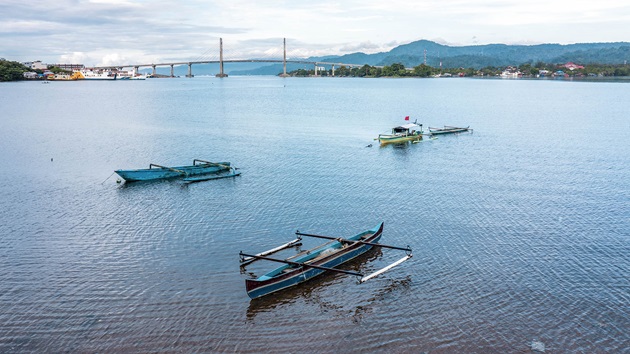3 October 2025
"The 2025 EAT-Lancet Commission report once again highlights the vital role that fish and seafood – both farmed and wild – must play in the global effort to transform food systems so they can feed a growing population within planetary boundaries.
"The report's Planetary Health Diet (PHD), which if followed would optimise both human and environmental health, recommends eating around 30g and no more than 100g of sustainably produced fish and seafood per day. The report identifies the importance of eating fish, along with vegetables, fruit, legumes, wholegrains and nuts.
"These recommendations are based on the nutritional and health profile, and environmental impacts of fish and seafood. The report reinforces the unique nutritional benefits of fish and seafood, as key sources of protein, particularly in developing economies, and as essential sources of omega-3 fatty acids that support brain development in children and cardiovascular health throughout life. It also recognises that sustainably produced seafood has relatively lower environmental impacts compared to many terrestrial animal proteins. Wild-capture fisheries in particular don't require land, freshwater, or feed.
"The science could not be clearer. We all need access to healthy, sustainable food – but in many places, the way we currently produce it is pushing our planet to its limits. The EAT-Lancet Commission once again states that food production systems must be environmentally sustainable.
"If the recommendations in the report are followed, this could lead to an increase in consumption levels of fish and seafood in many regions. Research carried out by the Marine Stewardship Council has shown that globally, just a fifth of the population say they eat two or more portions of fish a week – the amount recommended by heath authorities in many countries. Much of this increase will come from aquaculture, but wild fish stocks make up a vital part of current and future fish and seafood supplies, and currently, most farmed fish rely in part on wild-caught fish as feed. This means global progress on delivering sustainably produced seafood to consumers must be built upon and accelerated if we are to meet future needs.
When fisheries are well managed in line with scientific advice, fish stocks can recover and thrive, providing a long-lasting source of healthy food while supporting livelihoods and protecting ocean biodiversity. If we are to act on the report’s recommendations to increase consumption in some places and make fish and seafood part of a diet that protects both human and planetary health, now and in the future, we must take urgent steps to protect these valuable shared resources.
We must end overfishing, protect the wider ocean, and make sustainable choices. Governments, scientists, NGOs, consumers and the private sector, all have a part to play and are an important and recognised way to accelerate progress.

